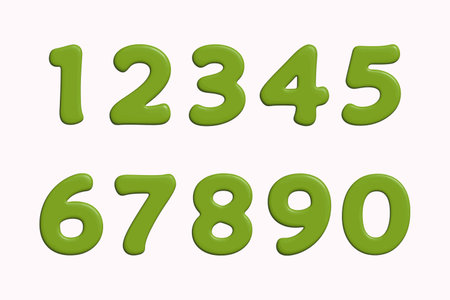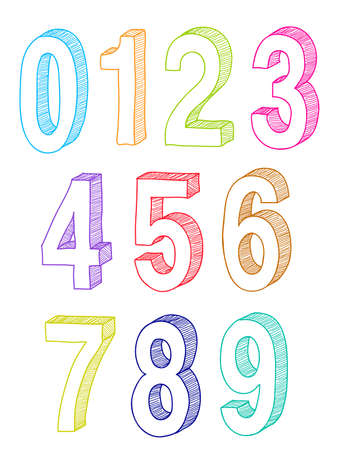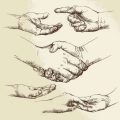Understanding Feng Shui Basics
Feng Shui, which translates to “wind” and “water” in English, is an ancient Chinese practice focused on creating harmony between people and their environments. For centuries, Feng Shui has guided people in arranging their homes and workspaces to promote positive energy, or “chi,” supporting health, happiness, and prosperity.
The Origins of Feng Shui
Feng Shui dates back thousands of years in China, where it began as a way to choose the best locations for important buildings and gravesites. Over time, it developed into a complete system for organizing spaces. The main idea is that the arrangement of objects and the flow of energy can influence your well-being.
Feng Shui Meets Modern American Lifestyles
Today, many Americans are turning to Feng Shui to create more balanced and peaceful living spaces. With busy schedules and cluttered homes, applying Feng Shui principles can help reduce stress and make daily life feel more manageable. By focusing on decluttering and intentional design choices, anyone can bring a little more calm and clarity into their environment.
Key Feng Shui Principles
| Principle | Description | How It Fits Modern Life |
|---|---|---|
| Chi (Energy Flow) | Encourages smooth movement of energy throughout the space. | Clear pathways in rooms, avoid blocking doors with furniture. |
| Yin & Yang | Balance between opposite forces (calm vs. active areas). | Create quiet corners for relaxation; energize workspaces with light. |
| The Five Elements | Wood, Fire, Earth, Metal, Water—each brings unique qualities. | Add plants (wood), candles (fire), stones (earth), metal frames, water features. |
| The Bagua Map | A tool to map out areas of your home connected to life aspects like health or wealth. | Organize rooms based on what you want to improve in your life. |
Why Decluttering Matters in Feng Shui
A central idea in Feng Shui is that clutter blocks energy flow and creates stress. By clearing out unnecessary items and keeping only what serves you, you invite fresh opportunities and better focus into your life. In the United States, where busy lifestyles often lead to overcrowded spaces, combining decluttering with Feng Shui offers a practical path to a calmer home and mind.
2. The Connection Between Clutter and Well-Being
When our homes or workspaces are filled with unnecessary items, it’s not just about a messy room—it can deeply influence how we feel and function every day. Feng Shui, the ancient Chinese art of arranging spaces for harmony, teaches that clutter blocks the smooth flow of energy or “chi,” which can lead to feelings of stagnation or stress. Modern science agrees: studies in the U.S. show that cluttered environments can increase anxiety, reduce focus, and even impact physical health.
How Clutter Impacts Your Life
| Aspect of Well-Being | Effects of Clutter | Feng Shui Perspective | Western Research Findings |
|---|---|---|---|
| Mental Health | Can cause overwhelm and mental fatigue | Blocks mental clarity and creativity | Associated with higher stress levels (UCLA study) |
| Emotional Health | Makes relaxation difficult; may trigger guilt or shame | Prevents positive energy flow and emotional balance | Linked to increased anxiety and depressive symptoms |
| Physical Health | May contribute to poor sleep and less motivation to exercise | Disrupts restful spaces like bedrooms; drains vitality | Tied to unhealthy eating habits and lower activity levels |
The Science Behind Decluttering
Researchers at Princeton University found that visual clutter competes for your attention, making it harder to concentrate on tasks. Similarly, a UCLA study revealed that American families who lived in more cluttered homes had higher levels of the stress hormone cortisol. In short, both Eastern wisdom and Western science agree: decluttering isn’t just about tidiness—it’s an act of self-care.
The Emotional Weight of Clutter
Many people don’t realize how much emotional baggage they carry simply by holding onto items they no longer need. Letting go can feel tough, but it opens up space for new opportunities and brings a sense of lightness.
Quick Tips for Getting Started
- Start small—try one drawer or shelf at a time.
- Aim for progress, not perfection.
- Ask yourself if each item supports your current goals or happiness.
If you want a more balanced life, remember that clearing your environment is often the first step toward clearing your mind. By blending Feng Shui principles with what modern research tells us, you can create a space that truly supports your well-being.

3. Practical Steps to Declutter Your Space
Start with a Clear Intention
Before you begin decluttering, set a positive intention for your space. Think about what you want to achieve—maybe its more peace, better focus, or improved energy flow. This mindset will help you make thoughtful decisions as you clear out unnecessary items.
Actionable Tips for Removing Unnecessary Items
- Sort by Category: Go room by room, sorting items into categories like “keep,” “donate,” and “discard.”
- Ask Key Questions: For each item, ask yourself: Do I use this? Does it bring me joy? Does it support my goals?
- Start Small: If youre feeling overwhelmed, start with one drawer or shelf at a time. Progress builds momentum!
- Avoid Holding onto ‘Just in Case’ Items: Trust that letting go creates space for new opportunities.
Organizing Different Areas in Your Home
| Area | Feng Shui Focus | Quick Organization Tip |
|---|---|---|
| Entryway | Welcoming energy in | Keep shoes, coats, and bags stored neatly; add a small plant for vitality. |
| Living Room | Cultivating relaxation and connection | Edit surfaces; arrange furniture for easy flow and conversation. |
| Kitchen | Nourishment and abundance | Clear countertops; organize pantry by food type; keep the fridge clean. |
| Bedroom | Rest and relationships | Remove electronics; use soft lighting; keep nightstands clutter-free. |
| Bathroom | Cleansing and renewal | Toss expired products; store essentials in baskets or drawers. |
| Home Office | Focus and productivity | Purge old papers; file important documents; add inspiring décor. |
Feng Shui-Friendly Storage Solutions
- Baskets and Bins: Choose natural materials like bamboo or wicker to invite grounding energy into your home.
- Shelves with Closed Doors: Conceal clutter while keeping your space visually calm and balanced.
- Labeled Containers: Make it easy to find what you need and encourage everyone in your household to stay organized.
- Under-Bed Storage: Use sparingly—only for soft items like linens or out-of-season clothes, as too much under-bed storage can block restful energy in Feng Shui.
- Avoid Overstuffing: Allow some empty space on shelves and in closets to let energy (Chi) flow freely throughout your home.
Tidy Up Regularly for Lasting Balance
A regular tidying routine—whether weekly or monthly—helps maintain your newly balanced environment. Remember, small actions done consistently have the biggest impact on your homes energy and your daily life.
4. Balancing Energy in Key Living Areas
Why Energy Balance Matters
In Feng Shui, the way you arrange your home can directly affect your mood, productivity, and sense of well-being. By decluttering and thoughtfully arranging your furniture and decor, you help positive energy (chi) flow freely, creating a more balanced and harmonious space.
Guidelines for Arranging Furniture and Decor
Living Room
- Sofa Placement: Place your main sofa against a solid wall if possible, facing the main entrance. This provides support and helps you feel secure.
- Avoid Blocked Pathways: Keep walkways clear to let energy move easily around the room.
- Lighting: Use layers of lighting like floor lamps, table lamps, and natural light to create a welcoming atmosphere.
- Decor: Choose art and decor that make you feel happy and inspired. Avoid sharp objects or harsh lines pointed toward where people sit.
Bedroom
- Bed Position: Place your bed diagonally across from the door, but not directly in line with it. This is called the “command position” in Feng Shui and promotes restful sleep.
- No Clutter Under Bed: Store as little as possible under your bed to encourage calm energy while you rest.
- Balanced Nightstands: If possible, use matching nightstands on either side of the bed for balance.
- Soothing Colors: Choose soft colors like light blues, greens, or earth tones to encourage relaxation.
Workspace/Home Office
- Desk Placement: Place your desk so you can see the entrance to the room without being directly in line with the door. This helps you feel in control and less distracted.
- Cord Management: Keep cords tidy and out of sight to reduce visual clutter.
- Organize Supplies: Store office supplies in closed containers or drawers to keep surfaces clear and focused.
- Add Plants: A small plant can help bring fresh energy into your workspace.
Quick Reference Table: Feng Shui Tips by Room
| Living Room | Bedroom | Workspace | |
|---|---|---|---|
| Main Furniture Placement | Sofa against solid wall, facing entry | Bed diagonal from door | Desk facing door (not directly in line) |
| Avoid | Blocked pathways | Clutter under bed | Tangled cords, excess items on desk |
| Best Colors/Decor | Warm neutrals, uplifting art | Pale blue/green, calming artwork | Energizing accents, plants |
| Extra Tip | Add layered lighting | Use matching nightstands | Keeps supplies organized & hidden |
The Importance of Personal Comfort
No matter what guidelines you follow, make sure every change feels right for you. The goal is to create spaces that support your daily life and reflect who you are—while inviting balance and harmony into your home.
5. Building Lasting Habits for a More Balanced Life
Making Decluttering a Part of Your Daily Routine
To truly benefit from Feng Shui principles, it’s important to make decluttering a regular part of your life—not just a one-time event. Start small: spend five minutes each day clearing off your kitchen counter or organizing your entryway. By breaking tasks into bite-sized pieces, you’re more likely to stick with them. Consider adding decluttering time to your daily or weekly schedule, just like you would an exercise class or family dinner.
Simple Ways to Keep the Positive Energy Flowing
Keeping up positive energy—or “chi”—in your home doesn’t have to be complicated. Here are some everyday habits you can try:
| Habit | How It Helps Balance Your Space |
|---|---|
| Open windows for fresh air daily | Cleanses stagnant energy and brings in good vibes |
| Put things back after use | Keeps clutter at bay and maintains order |
| Wipe down surfaces regularly | Prevents buildup of dust and negative energy |
| Donate unused items monthly | Makes space for new opportunities and abundance |
| Rotate décor seasonally | Keeps your environment feeling fresh and inspiring |
Integrating Feng Shui Into Everyday American Life
You don’t need to completely overhaul your home to enjoy the benefits of Feng Shui. Small changes can make a big impact—think about incorporating these ideas:
- Create a welcoming entryway: In many American homes, the entry is where first impressions are made. Keep shoes organized, hang up coats, and add a touch of greenery for good chi.
- Balance work and relaxation spaces: Use soft lighting and calming colors in bedrooms or living rooms, while keeping workspaces tidy to promote focus and productivity.
- Add personal touches: Display family photos, favorite books, or meaningful art in places where you want to boost happiness and connection.
- Make it a family affair: Encourage everyone in the household—including kids—to participate in tidying up and choosing items that bring joy.
- Simplify storage solutions: Use baskets, bins, or shelves that fit your lifestyle—think of what’s practical for busy mornings or weekend gatherings with friends.
Your Feng Shui Habit Tracker Template
If you like checklists, here’s a simple tracker you can use each week:
| Task | M T W T F S S | ||||||
|---|---|---|---|---|---|---|---|
| Tidy main living area | |||||||
| Sort mail/paper clutter | |||||||
| Wipe down kitchen surfaces | |||||||
| Open windows for 10 min. | |||||||
| Add fresh flowers or plant care |
The more consistent you are with these small steps, the easier it becomes to maintain both a clutter-free space and the positive energy flow recommended by Feng Shui. Remember: balance starts at home!


